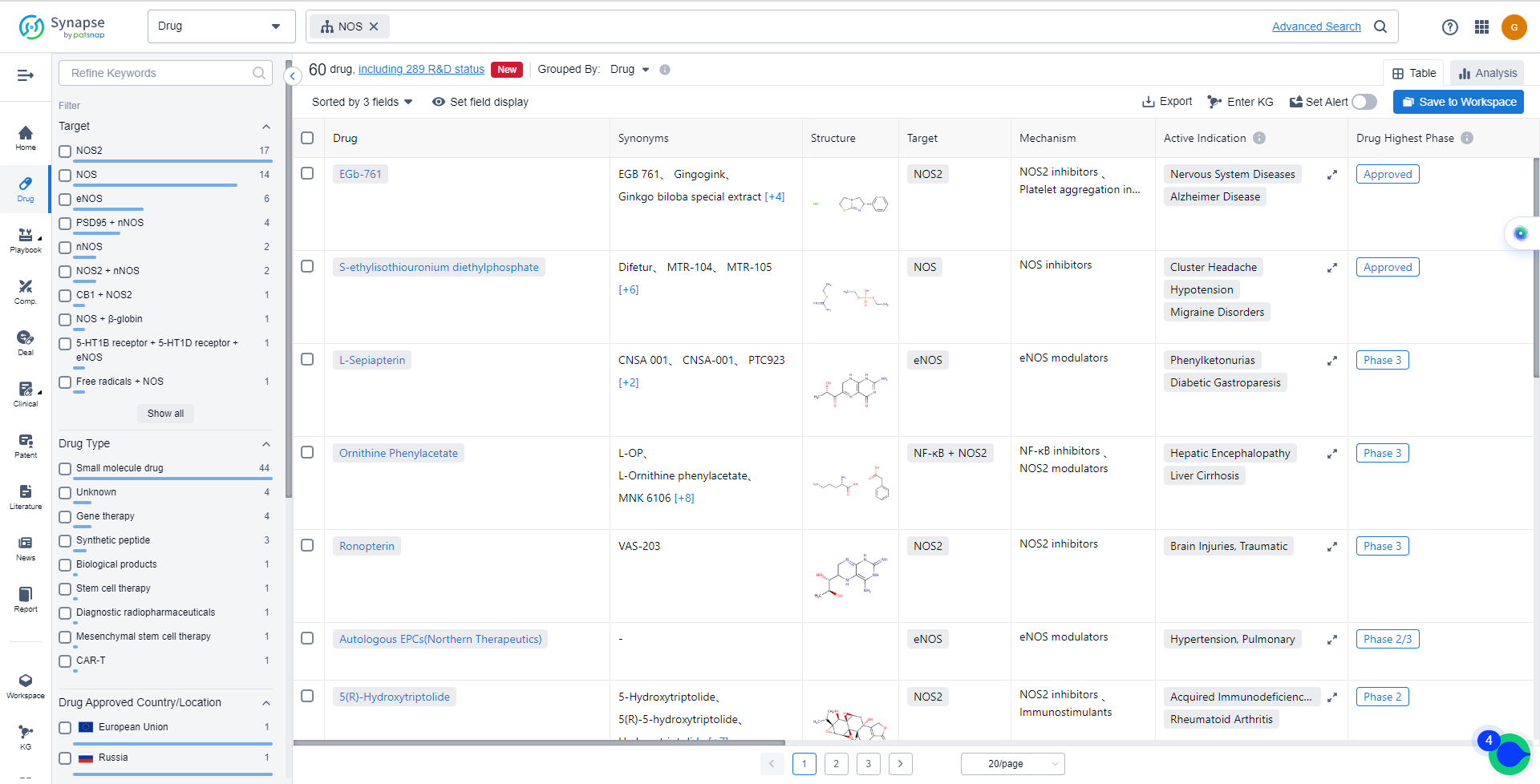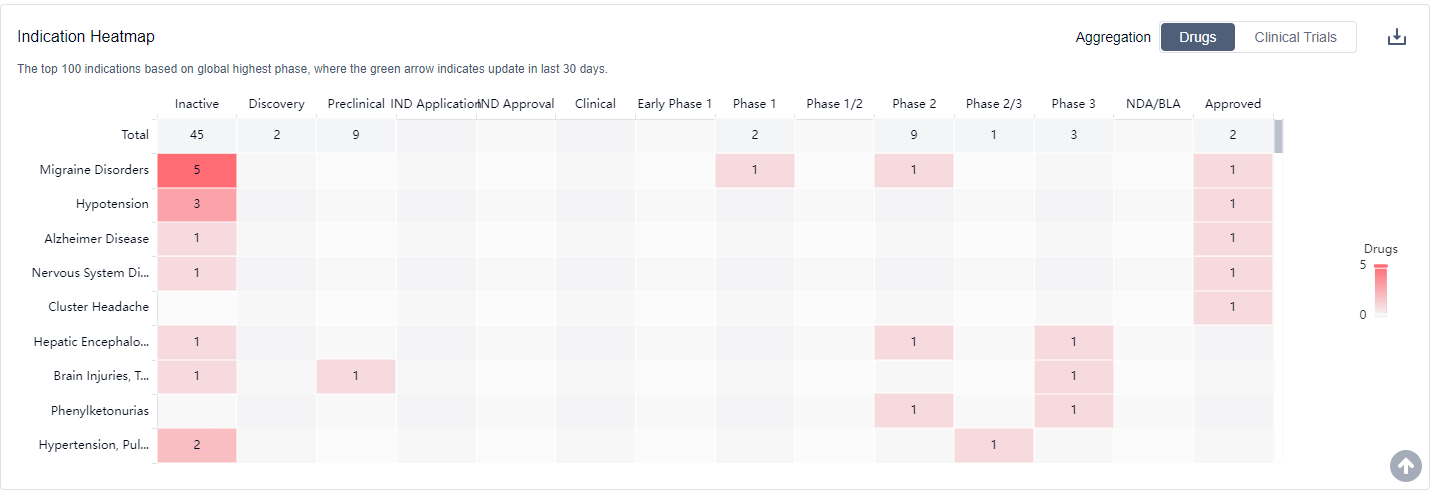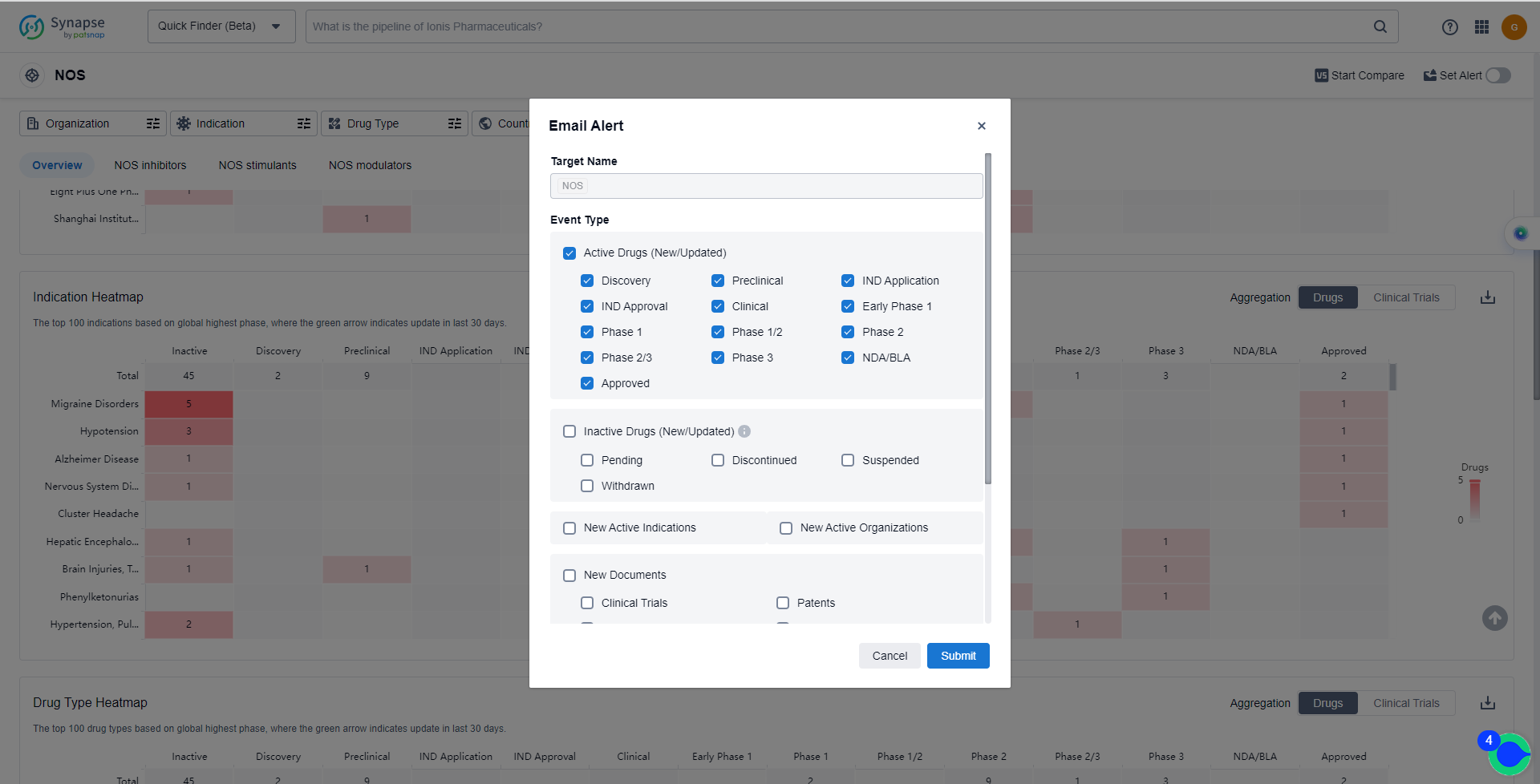Understanding NOS Inhibitors and Methods to Keep Abreast of Their Recent Developments
Nitric oxide synthase (NOS) is an essential enzyme in the human body that plays a crucial role in various physiological processes. NOS is responsible for the production of nitric oxide (NO), a signaling molecule involved in regulating blood flow, immune response, and neurotransmission. NO acts as a vasodilator, relaxing blood vessels and improving blood circulation. It also plays a role in immune defense by enhancing the activity of white blood cells. Additionally, NO acts as a neurotransmitter, facilitating communication between nerve cells. The proper functioning of NOS and the production of NO are vital for maintaining cardiovascular health, immune function, and neuronal signaling.
The analysis of the target NOS reveals a competitive landscape with multiple companies growing rapidly and focusing on advancing their drugs through clinical trials. The approved drugs for various indications indicate progress in addressing unmet medical needs. The presence of biosimilars suggests intense competition around innovative drugs, and research and development institutions specializing in advanced biotechnology are driving this progress. Additionally, China's progress in drug development highlights its emergence as a key player in the pharmaceutical industry. Overall, the target NOS shows promising development opportunities and potential for future advancements in the pharmaceutical industry.
How do they work?
NOS inhibitors are a type of medication that inhibit the activity of nitric oxide synthase (NOS), which is an enzyme responsible for the production of nitric oxide (NO) in the body. Nitric oxide is a signaling molecule involved in various physiological processes, including the regulation of blood flow, immune response, and neurotransmission.
From a biomedical perspective, NOS inhibitors are commonly used in the treatment of conditions where excessive production of nitric oxide is detrimental. For example, in certain inflammatory diseases, such as rheumatoid arthritis, excessive nitric oxide production can contribute to tissue damage and joint inflammation. By inhibiting NOS, these inhibitors can help reduce the production of nitric oxide and alleviate the symptoms associated with these conditions.
There are three isoforms of NOS: neuronal NOS (nNOS), endothelial NOS (eNOS), and inducible NOS (iNOS). NOS inhibitors can target specific isoforms or have a broader spectrum of action. Some examples of NOS inhibitors include L-NAME (Nω-nitro-L-arginine methyl ester) and L-NMMA (Nω-monomethyl-L-arginine).
It's important to note that the use of NOS inhibitors should be carefully monitored, as nitric oxide plays a crucial role in various physiological functions. Therefore, the inhibition of NOS should be done under medical supervision to ensure the balance of nitric oxide levels in the body.
List of nitric oxide synthase Inhibitors
The currently marketed nitric oxide synthase inhibitors include:
- EGb-761
- S-ethylisothiouronium diethylphosphate
- L-Sepiapterin
- Ornithine Phenylacetate
- Ronopterin
- Autologous EPCs(Northern Therapeutics)
- 5(R)-Hydroxytriptolide
- Malifutai
- NXN-188
- NXN-462
For more information, please click on the image below.
What are nitric oxide synthase inhibitors used for?
nitric oxide synthase inhibitors are used in certain inflammatory diseases. For more information, please click on the image below to log in and search.
How to obtain the latest development progress of nitric oxide synthase inhibitors?
In the Synapse database, you can keep abreast of the latest research and development advances of nitric oxide synthase inhibitors anywhere and anytime, daily or weekly, through the "Set Alert" function. Click on the image below to embark on a brand new journey of drug discovery!








